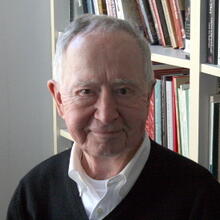The history of “perfect eloquence” as an educational goal begins in ancient Athens some two millennia before the founding of the Jesuits. At the time of Pericles, the hero in Athenian democracy was the good citizen who could contribute to the good of the city. In that democracy, the Sophists, much maligned by Plato, helped make their compatriots aware of the power of speech. As Gorgias put it, “Speech is a great power, which achieves the most divine works, for it can even put a stop to fear, remove grief, create joy and increase pity.”
Isocrates, a younger contemporary of Plato, responded to Plato’s criticism of a morally neutral approach to eloquence by relating it to virtue and worthy causes. He opened his school around the year 390 and taught the “art of the word.” By studying great authors, of which Athens had plenty, students learned to put word to thought or, better, learned how thought was begot through the right word; you do not have the thought until you have the word to express it. For Isocrates skill with words was to be directed to the common weal. He was not training ivory-tower philosophers but men ready to assume public responsibility.
With the conquests of Alexander the Great, the system Isocrates and his successors promoted spread broadly and eventually conquered Rome itself. There it found theorists of the first order in Cicero and Quintilian. The ultimate goal was to produce a certain kind of person, whom Cicero described as “a good man, skilled in effective communication,” a man “for others.” He reminded the Romans: “We are not born for ourselves alone. We are born for the sake of other human beings, that we might help one another and bring human society together in peace and harmony.”
In succeeding centuries, this tradition of education never died out, but it was powerfully revived in the Renaissance by persons like Erasmus. Then came the Jesuits, who without a second thought appropriated this humanistic philosophy of education and made it their own. At that philosophy’s core was a belief in the power of words and an even deeper belief that that power should be directed to worthy causes.
“To help souls” was the expression Saint Ignatius used on almost every page of the letters he wrote to Jesuits to explain what the Society was all about. The schools helped boys get an education, but the education equipped them with the skills and ideals they needed to help others. Juan Alfonso de Polanco, Ignatius’ brilliant secretary, described the ultimate purpose of the schools thus: “Those who are now only students will grow up to be pastors, civic officials, administrators of justice and will fill other important posts, to everybody’s profit and advantage.”
Although “perfect eloquence” was an ideal long before the Jesuits, they in 1599 codified the expression—eloquentia perfecta—in their official plan of studies, the famous Ratio Studiorum. Rhetoric continued as the culminating discipline in Jesuit schools into modern times. It was not “mere rhetoric,” insincere and vacuous trifling with words, but a discipline that implied a sophisticated and fully developed philosophy of education—indeed, a philosophy of life.
The Jesuits stole their educational philosophy from an older tradition and ran with it, developing it far beyond what other educators were doing. They were among the first to be devoted to “active learning” by students, who did not merely read a speech by Cicero but had to deliver it. Students not only read plays; they performed them, sometimes before large audiences, with a full complement of music, dance and “special effects.” The students were thus made accustomed to the public’s gaze and scrutiny before they left school.
Education is an imperfect enterprise. By the 19th century the philosophy underlying the rhetorical tradition had begun to fade from memory even among Jesuit educators. Great enemies of the tradition appeared. Ernst Renan denounced rhetoric to the Académie Française as “the only error of the Greeks” and blamed the Jesuits for foisting that error upon society at large.
Meanwhile, other disciplines and academic programs proliferated. Rhetoric (and the whole humanistic program) became increasingly marginalized, as the powerful philosophy that underlay it was modified and updated to respond to contemporary challenges and then virtually forgotten. Thus things stood until very recently. It is encouraging to read in these pages of America about the current revival of the ideals of “perfect eloquence” in Jesuit schools. May it flourish!







